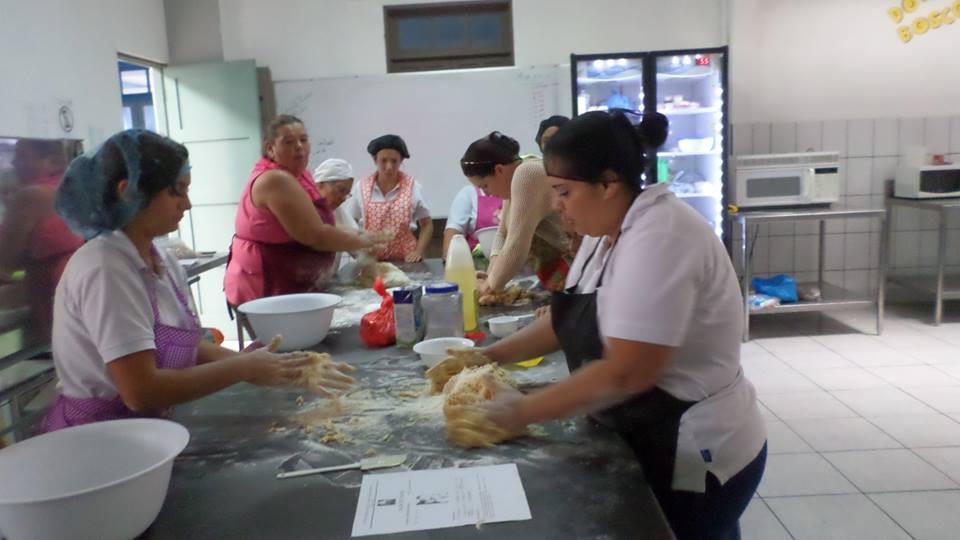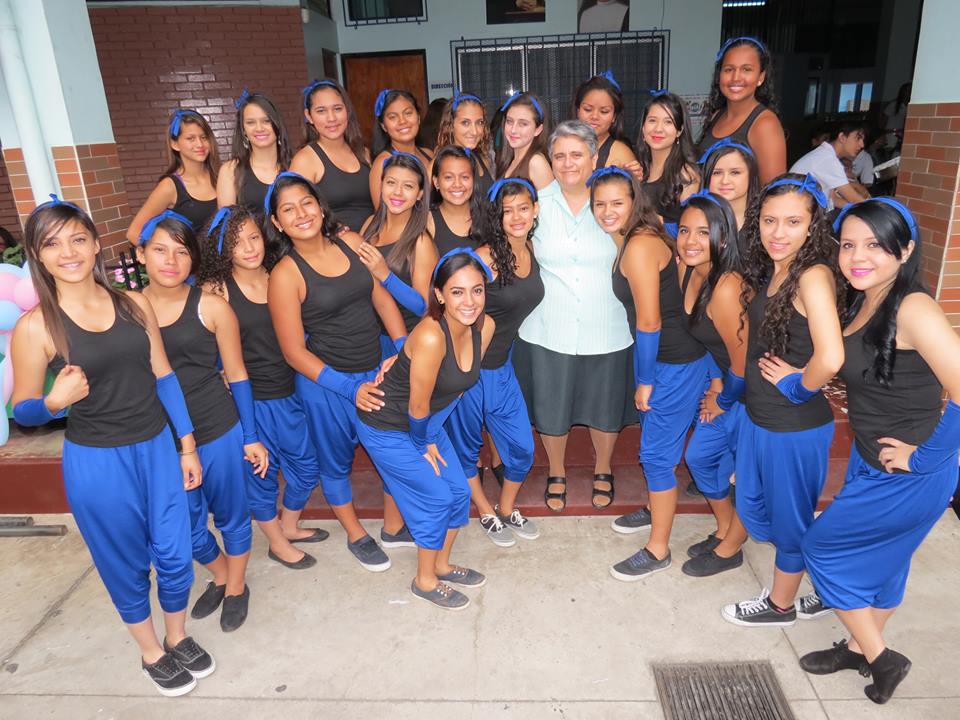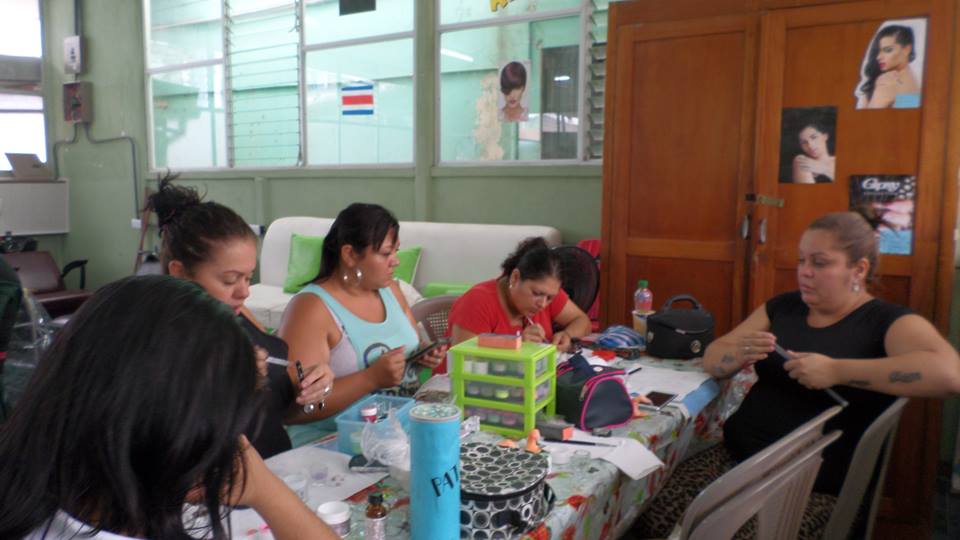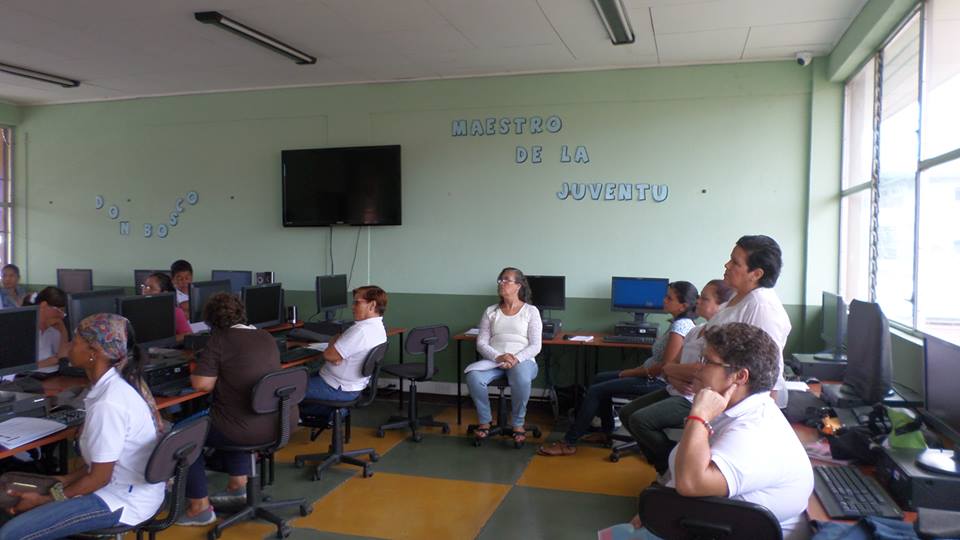Social Commitment / HOUSE OF OPEN DOORS: educational proposal for girls, youth and adults in vulnerable situations
1.1 General objective:
Promote with the Educational Community a Salesian environment characterized by joy, study, communication, the presence of God, the family spirit in which young women find themselves, rebuild their life project, rebuild the social fabric in the who pass through, assume the importance of communication processes in their lives, project themselves in their socio-family environment as agents of change, social partners with the face of the gospel.
1.2 Specific Objectives:
1. Promote the spiritual and religious dimension, discovering the presence of God in joy, studying in a climate of respect and tolerance for religious differences in order to experience the merciful God who does not exclude but reunites in one family.
2. Rediscover the intrinsic value of the human person and appreciation of its powers that allow it to think positively about themselves and the possibility of a life project.
3. Strengthen social skills and healthy interpersonal relationships that allow you to establish networks of emotional, psychological, educational and family support.
4. Build a life project in the short, medium and long term that allow you to project yourself as an agent of change in your socio-family environment.
It is a comprehensive educational offer that responds to a youth sector expelled from the regular education system that fosters a preventive environment that seeks to return dignity and voice to those who do not have it, seeks comprehensive actions that revive the hope of forging a quality life project and inserts the young woman in a diverse social fabric from which she comes, to which she would be condemned to suffer, if she does not make a significant change in her life options.
The Sor María Romero Educational Complex serves a population of 126 young women between the ages of 13 and 20, coming from marginal urban areas (priority attention) of high social conflict and crime: trade and consumption of illicit substances, poverty, sex trade, trafficking in people, street gangs, frequent homicides, robbery.
They come from homes, most of them disintegrated and led by women with multiple partners who, in a high percentage, have not completed a complete primary education. A smaller percentage is found in illiteracy; Among the population there is a high percentage of mothers of these unemployed and underemployed young women.
The social and family context reveals the condition of the young women, most of them come from conflictive educational centers, with the presence of drugs, violence and abuse, psychological and physical harassment (bullying), they have repeated one more time, school years in primary or secondary school .
Many of them come from environments of high sexual promiscuity. His sexual initiation is at school ages. Some of them live with their sexual partners even when they are minors.
In Costa Rica, due to the sexual freedom law, you can freely coexist with your sexual partner from the age of 15, although such coexistence can begin before it. They are currently outside the formal system due to age.
This situation is complicated, since some have chosen to stop studying for one or more years. For this reason, the proposal is essential to reinsert these young women into formal educational processes with a comprehensive care program with psychosocial, communicative, transcendent processes, with personalized accompaniment in the emotional, educational, interpersonal relationships and social skills areas.
Many of the families fail to meet basic needs such as food, shelter, security, financial support for the study, basic services such as water, electricity (which are often acquired illegally).
The environment: An educational environment, close to the sisters, teachers and administrative staff, where the positive concept of the person is started (we believe they are good) without losing sight of the reality point (the origin and experiences of violence and life story that each one has), characterized by:
Permanent evangelization through proposals of values, liturgical and devotional celebrations, personal witness, experience of values such as honesty, respect, listening, reflection, dialogue, taking care of things, trust, making altars and billboards. Celebration of ecclesial and Salesian festivals.
Organization of orderly, clean, adorned and embellished spaces where they experience that they are worthy of a healthy and dignified space that they themselves care for and are responsible for cleaning up their educational environments.
Appropriate spaces for social exchange, interpersonal relationships.
Relational climate of respect, serene, with the use of an appropriate and respectful vocabulary. They are treated with an educated, dignified tone and vocabulary that helps them to appropriate a body, behavioral and verbal language superior to the social context from which they come.
Training spaces: Good morning, prepared and organized by the students themselves and accompanied by teachers, with themes that respond to a proposal of values developed at the beginning of the year with the educational community. This year: "I am a Salesian because I am ... (value)" that changes monthly.
2014: Sense of belonging
2015: Identity
Arts festival
Science fair
English Festival: spelling bee
Prevention campaigns and in some cases containment of problems related to coexistence and social skills:
The COME-GEN campaign… (eat people): respect for the integrity and privacy of each one of the members of the Educational Community.
Harassment and violence prevention protocols: informative seminar, film screening, case analysis, self-help focus groups to prevent victims or aggressors.
Active citizenship, human trafficking and sex trade seminars.
Weekly group therapy led by the psychologist with a theme that the same young women organize at the beginning of the year.
Hours of social service (50 hours). They attend to the needs of children's populations, hospitals, nurseries. They collaborate with teachers assisting people in literacy.
Spaces for the exercise of freedom and citizenship:
The “Complain here” board, a space for freedom of expression in which it is a physical space where they can freely write or express a subject that they themselves hold important. For example: bullying, the schedule, what I don't like about the institution, what I appreciate about the institution, who is she for me? (photo of the Virgin), the educational quality of my center ... The questions are generated by a youth group called Metamophosis and the Blue Flag (ecological) group. In the educational centers from which they come: services, classrooms, desks all are grated with inappropriate expressions of their complaints. The blackboard whine here encapsulates this need for expression.
Free activities: At the beginning of the semester they are presented with a varied proposal of non-academic activities: athletics, zumba, popular dance, folk dance, urban gardens, youth group (metamorphosis), choir, kitchen crafts that they choose and must attend regularly to educate perseverance, responsibility and assumption of options made. All these activities organized in these spaces are for the animation of the same educational community in the different events.
- Young people inserted in a labor market with wages and social guarantees.
- Young people who manage to win the baccalaureate exam (at the national level) and the exams of the national universities that allow them to choose a higher study through student scholarships.
- Team of teachers with a Salesian heart, involved (teachers are sent by the Ministry of Education
- Financing for teaching materials and food program through the Ministry of Education.
- Adequate environment where conflict is worked without violence. And when it is presented, the solution is discussed and jointly sought.
- Free expression of your thoughts, positions, likes, dislikes.
- Accompaniment, close youth-companion dialogue.
- Sense of belonging in care, cleaning the rooms. Involvement in activities.







